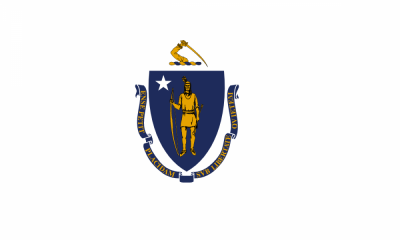Massachusetts

Massachusetts protects the right of publicity under a commercial appropriation statute. Privacy interests are protected separately under the State’s Privacy Act.
Statute
YES
Commercial Appropriation Statute—Mass. Gen. Laws Ann. ch. 214, § 3A
Civil action for use of name, portrait or picture for advertising or trade purposes without written consent.
Massachusetts Privacy Law—Mass. Gen. Laws Ann. ch. 214, § 1B
A person shall have a right against unreasonable, substantial or serious interference with his privacy.
Common Law - Right of Publicity
UNCLEAR
No court to date has expressly concluded that the statute provides the sole remedy for right of publicity claims.
Common Law - Right of Privacy-Appropriation Tort
UNCLEAR
No court to date has expressly concluded that the statute provides the sole remedy for privacy claims.
Post-Mortem Right
UNCLEAR
To date no court has so held. A bill to add post-mortem rights has been proposed in almost every legislative session over the past six years. The most recent effort, Senate Bill 2022, died in the House in January of 2015, after passing the Senate.
Limits on Right
Does the law require the plaintiff or identity-holder to be a celebrity or have a commercially valuable identity?
YES
The value of one’s name, portrait or picture is not appropriated “when it is published for purposes other than taking advantage of his reputation, prestige, or other value associated with him, for purposes of publicity.” Some courts have rejected claims by private citizens without established commercial values in their identities.
Tropeano v. Atlantic Monthly, Co., 400 N.E.2d, 847 (Mass. 1980)
Kelley v. CVS Pharmacy, Inc., 2007 WL 2781163 (Mass. Super. August 24, 2007)
Does the law protect persona?
UNCLEAR
Mass. Gen. Laws Ann. ch. 214, § 3A only lists protection for “name, portrait or picture”.
Is Liability Limited to Uses on Commercial Advertising or Commercial Speech?
MAYBE
Mass. Gen. Laws Ann. ch. 214, § 3A states that use may be for advertising or for the purposes of trade which is likely broader than commercial speech. However, several cases have suggested that it may be limited to commercial speech. The Massachusetts high court suggested that uses in magazines (outside of advertising for the magazine) do not fall within the purview of the statute.
Tropeano v. Atlantic Monthly, Co., 400 N.E.2d. 847 (Mass. 1980)
Peckham v. New England Newspapers, Inc., 865 F.Supp.2d 127 (D. Mass. 2012)
Statutory Defenses
The statute provides a number of exemptions for:
- Photography exhibitions (unless the subject of the photograph has provided written notice objecting to the photograph being displayed)
- Use of manufacturer or dealers names in connection with the disposition of their goods
- Use of author/composer/artists names in connection with the disposition of their works
First Amendment Analysis
To date no Massachusetts court has considered a unique test for balancing First Amendment and right of publicity interests. Some federal district courts have dismissed commercial appropriation claims on First Amendment grounds for uses that express critical opinions of the plaintiff or use plaintiff’s name in connection with matters of legitimate public concern.
McMann v. Doe, 460 F.Supp.2d 259 (D. Mass. 2006)
Old Colony Donuts, Inc. v. ABC, 368 F. Supp. 785 (D. Mass. 1974)
Other Commentary
Because Massachusetts has both a commercial appropriation statute and a separate privacy act, Massachusetts courts have interpreted the appropriation statute more narrowly than the New York privacy statute on which it was modeled. Accordingly, the state courts have clearly stated that injuries to privacy-interests, such as injured feelings or the dignitary harms that flow from unwanted publicity are not cognizable under the appropriation statute.
Tropeano v. Atlantic Monthly, Co., 400 N.E.2d, 847 (Mass. 1980)
